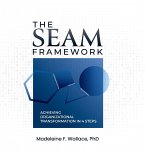Whereas digital transformation, considered from the standpoint of strategy, suggests a direct link with business benefits, questions linger about the implementation of digital technologies that often result in a lack of return on investment. Many consulting trends adopt a technology-centered approach, assuming that AI, IoT, data analytics, or robotics, would lead to business performance. Yet, most of the time, organizational factors are neglected, especially hidden costs or hidden work. Moreover, unexpected consequences are overlooked, such as resistance to change. Digital transformation is a practical problem for managers. Are IS implementation approaches such as agile methods to Socio-Technical Systems (STS) sufficient to tackle these issues? This book suggests starting from organizational transformation, in essence, independently from technology with methods such as Business Process Management (BPM), Socio-Economic Approaches to Management (SEAM) or Organizational Development (OD). Overall, whereas technology-centered approaches have been associated with numerous unintended consequences and failures with previous generations of technologies (e.g., ERP or KMS), process-centered and human-centered approaches may represent a less risky approach to digital transformation implementation. This volume focuses on evaluating the potential performance improvements and risks of digital transformation and ways to assess how technology may support work and organizational goals. Therefore, whereas written by both academics and practitioners, this book has been written for all managers in companies and institutions in order to help them achieve digital transformation success.
Hinweis: Dieser Artikel kann nur an eine deutsche Lieferadresse ausgeliefert werden.
Hinweis: Dieser Artikel kann nur an eine deutsche Lieferadresse ausgeliefert werden.








